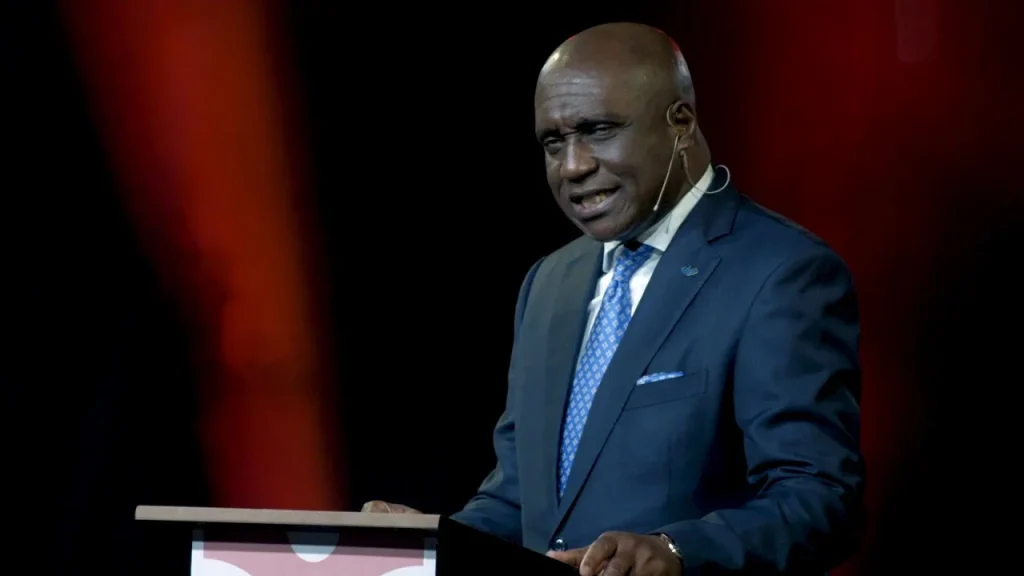Cape Town — When the word “fossil” comes to mind, what do you generally think of? Perhaps old bones, dating back to the era of dinosaurs or the ancient remains of our human ancestors. Fossil fuels, much like the relics from which they derive their name, are aged reserves that have long fueled global expansion and industrial development. Yet, why does this source of energy remain so deeply divisive, and why does it continue to dominate discussions surrounding the climate crisis? To truly unravel the complexities, we must journey back to where it all began.
Fossil fuels, such as petroleum, gas, and coal, are organic energy sources formed millions of years ago deep within the earth’s crust from decaying plants and animals. The intense heat and pressure within the earth’s mantle transformed these organic remnants into the energy sources we rely on today. However, the extraction and utilization of these resources come at a significant cost to our planet, and it is imperative to understand the far-reaching implications of their usage.
The extraction process involves heavy machinery that not only consumes large amounts of energy, mainly derived from fossil fuels, but also inflicts immeasurable damage to the surrounding water bodies, land, flora, and fauna. These fuels are then transported across vast distances via pipelines and tankers to refineries before being distributed globally, thereby perpetuating a cycle of environmental harm.
Furthermore, it is essential to acknowledge the profound impact of the oil and gas industry on indigenous communities, who have historically borne the brunt of displacement and brutality amidst relentless extraction. As the global demand for energy skyrockets, fueled by industrial growth, indigenous peoples find themselves increasingly marginalized in the quest for energy resources simply to sustain their ancestral lands.
This year, the construction of the 1,443km East African Crude Oil Pipeline, spanning from Uganda to Tanzania, resulted in the displacement of over 100,000 individuals, accompanied by inadequate or delayed compensation and the alleged mistreatment of those opposing the development. Such injustices were meticulously documented by 350.org and Human Rights Watch, shedding light on the devastating repercussions of prioritizing industrial progress at the expense of human and environmental welfare.
The consequences of burning fossil fuels extend beyond the extraction process. When ignited in internal combustion engines or to generate electricity, these fuels release carbon dioxide and a plethora of pollutants into the atmosphere. The accumulation of carbon dioxide leads to a heightened greenhouse effect, thereby contributing to global warming and the subsequent upheaval of natural balances, which poses profound risks to all life forms on Earth.
According to the United Nations, the increased concentration of greenhouse gases exacerbates global warming, triggers climatic shifts, and disrupts the equilibrium of ecosystems essential for the sustenance of various species, including humans. The escalating frequency and intensity of climate-related disasters, such as droughts and floods, further imperil food security, rendering traditional livelihoods impracticable and exacerbating environmental degradation.
To mitigate the adverse effects of climate change, it is imperative to curtail greenhouse gas emissions and limit global warming to 1.5 degrees above pre-industrial levels. Failing to address these challenges promptly not only imperils the delicate balance of nature but also endangers the very foundation of human existence.
From a health perspective, the ramifications of burning fossil fuels are far-reaching. In South Africa, a nation heavily reliant on coal for energy production, communities residing in the vicinity of coal mines and power plants bear a disproportionate burden of the associated health risks. Despite constitutional safeguards for a healthy environment, poor monitoring and ineffective implementation perpetuate pervasive environmental hazards, particularly affecting marginalized and low-income communities.
A recent visit by UN Special Rapporteur Marcos A. Orellana underscored the stark realities of environmental inequality stemming from the “crude legacy” of apartheid, which systematically exposed vulnerable communities to hazardous pollutants and enduring environmental degradation.
The persistent emission of pollutants, particularly from the coal industry and transport sector, perpetuates extensive air pollution, as delineated by satellite data commissioned by Greenpeace. South Africa’s coal-fired power plants emerged as the primary contributors to this alarming trend, casting a shadow of uncertainty over the nation’s environmental future.
The recent culmination of the COP28 climate talks in Dubai, UAE, highlighted the persistent discord between the promotion of fossil fuels and the imperative to combat climate change. The decision to host the conference in a nation predominantly reliant on fossil fuel extraction elicited widespread criticism, citing inadequate space for civil society voices to be heard and debated. The conspicuous presence of fossil fuel executives further underscored the entrenched entanglement of vested interests in climate policy discussions, raising pertinent questions about the sincerity of global climate action.
Amidst these contentious deliberations, the urgency of transitioning towards sustainable energy sources and confronting the environmental legacy of fossil fuel dependence has never been more pressing. With the fate of our planet hanging precariously in the balance, addressing the pernicious grip of fossil fuels on our collective future necessitates a concerted global effort.
In conclusion, the protracted entanglement of fossil fuels in the fabric of our global energy landscape warrants a critical reassessment of our environmental priorities. As we navigate the intricacies of climate change and ecological sustainability, the imperative to reconsider our reliance on fossil fuels and embrace sustainable alternatives cannot be overstated. Only through collective action and unwavering commitment can we chart a course towards a resilient and sustainable future for generations to come.
A Historic Climate Talks Close Amidst Controversy Over Fossil Fuel Deals
As the curtains closed on the recent climate talks, whispers of a leaked document surfaced, hinting at Al Jaber’s plans to seal new oil and gas deals with several attending countries. The leaked document sparked a frenzy of discussions, overshadowing the landmark event and raising questions about the true intentions behind the deals.
A statement from Amnesty International shed light on the matter, revealing that ADNOC, one of the world’s top ten oil and gas producers, was poised to advance its interests at the talks. Documents obtained by the Centre for Climate Reporting disclosed Sultan Al Jaber’s mission to champion the interests of ADNOC and Masdar, a state-owned energy company focused on renewables and hydrogen. Furthermore, reports surfaced indicating that ADNOC staff were embedded within the COP28 organizing team in the UAE, amplifying concerns regarding the intertwining of corporate interests within the climate talks.
The negotiations extended past the December 12 deadline, as governments representing the most severely impacted nations fervently advocated for the phasing out of fossil fuels. While a glimmer of hope emerged with the inclusion of a transition away from fossil fuels in the final text, critics lambasted the tepid language for its failure to reflect the radical and urgent actions required for a sustainable future. The scientific community and UN Chief Antonio Guterres have unequivocally called for an immediate halt to new fossil fuel development, emphasizing the pivotal role of developed nations in shouldering the historical emissions burden.
During the closing plenary on December 13, UN Climate Change Executive Secretary Simon Stiell emphasized the pressing need for a decisive halt to humanity’s reliance on fossil fuels, branding it as the core climate challenge. While acknowledging that the talks did not mark the definitive end of the fossil fuel era, Stiell framed the outcome as a crucial step towards that ultimate goal.
Contrastingly, climate scientist Dr. Friederike Otto conveyed a sense of dissatisfaction, denouncing the lukewarm agreement reached at COP28 as a detrimental compromise that exacts a toll on all countries, irrespective of their economic standing. Dr. Otto underscored the stark reality that the compromise prioritized the short-term financial interests of a select few over the collective well-being of the vast majority, emphasizing the catastrophic impact on the health, lives, and livelihoods of people worldwide.
The heated debates and diverging perspectives underscored the complexity and gravity of the global climate crisis, compelling a candid reckoning with the intricate interplay between economic ambitions and environmental imperatives. The aftermath of COP28 serves as a poignant reminder of the formidable challenges that lie ahead and the imperative for resolute, unified global action to decisively address the looming specter of climate change.
By infusing storytelling techniques, a conversational tone, and vivid imagery, the article navigates the intricate landscape of the climate talks, inviting readers from diverse cultural backgrounds to contemplate the far-reaching implications of the negotiations. The judicious use of simple sentence structures, along with strategic keyword placement, ensures that the article resonates with a global audience while maximizing its visibility in search engine results.



